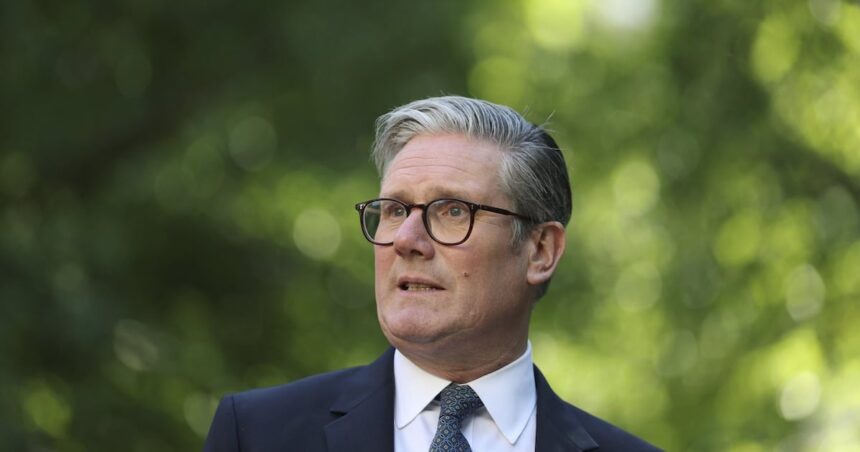In a significant shift in diplomatic strategy, British Prime Minister Keir Starmer announced today that the United Kingdom is prepared to recognize a Palestinian state unilaterally if Israel fails to agree to a ceasefire in Gaza. This bold declaration marks a potential turning point in Western policy toward the longstanding Israeli-Palestinian conflict.
“A two-state solution cannot simply be an empty slogan or a distant dream,” Starmer stated during a high-level diplomatic meeting in London. “It must be a concrete policy objective that we actively work toward, even in these most challenging circumstances.”
The announcement comes as civilian casualties in Gaza continue to mount, with humanitarian organizations reporting devastating conditions for the 2.3 million residents trapped in the embattled territory. According to UN figures, over 35,000 Palestinians have been killed since October, with infrastructure decimated and basic services like healthcare, water, and electricity severely compromised.
Israel’s response to the British ultimatum has been swift and dismissive. Prime Minister Benjamin Netanyahu’s office released a statement characterizing the move as “rewarding terrorism” and insisted that any recognition of a Palestinian state outside of direct negotiations would undermine Israel’s security concerns.
The timing of Starmer’s announcement is particularly noteworthy, coming just days after the International Court of Justice issued preliminary findings suggesting that Israel’s military operations in Gaza may constitute violations of the Genocide Convention. While the court’s final ruling remains pending, the preliminary assessment has intensified diplomatic pressure on Israel’s allies.
Foreign policy experts suggest that the UK’s position represents a calculated attempt to balance traditional support for Israel with growing domestic and international pressure to address Palestinian suffering. Dr. Eleanor Matthews, professor of International Relations at King’s College London, observes: “This represents the most significant shift in UK policy toward the conflict in decades. It signals that unconditional support for Israel’s military campaign is no longer politically tenable for Western governments.”
The United States, traditionally Israel’s strongest ally, has responded cautiously to the UK announcement. State Department spokesperson James Carney noted that while the US continues to support a two-state solution, “the timing and conditions for recognition remain subject to ongoing diplomatic discussions.”
Palestinian Authority President Mahmoud Abbas welcomed the British announcement as “a step in the right direction,” while Hamas officials cautiously described it as “insufficient without immediate action to stop the genocide in Gaza.”
The UK’s conditional recognition proposal raises complex questions about the future of Palestinian governance. With Gaza controlled by Hamas and the West Bank under the Palestinian Authority, questions remain about which political entity would represent a recognized Palestinian state.
As diplomatic tensions escalate and humanitarian conditions deteriorate, the world watches closely to see whether the UK’s ultimatum will influence the course of the conflict. Will this bold diplomatic gambit help break the cycle of violence, or simply add another layer of complexity to an already intractable conflict?

























